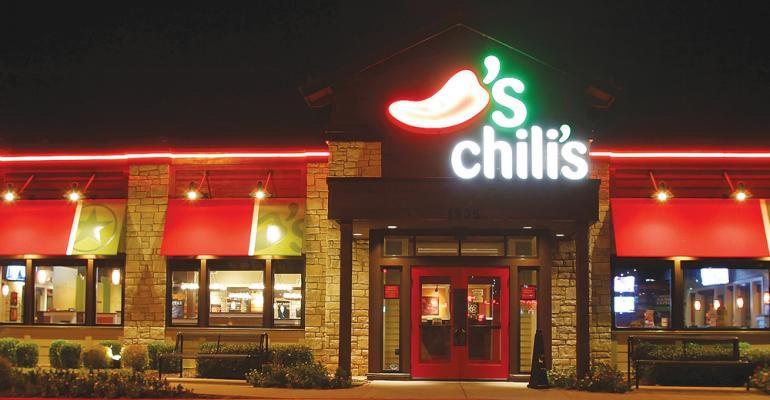Brinker International Inc. faces commodity pressures but is taking a prudent approach to its pricing at Chili’s Grill & Bar and Maggiano’s Little Italy concepts, executives said Wednesday.
The Dallas-based casual-dining company, which also owns two virtual brands, continued to emphasize value in the company’s third quarter, which ended March 30, said Wyman Roberts, Brinker CEO and president, in an earnings call with analysts.
“It will come as no surprise that looking ahead our biggest challenge is commodity inflation,” Roberts said. “We do believe the elevated costs we're dealing with today won't stay at these levels permanently. So we'll continue to leverage our pricing strategy that isn't passive, but isn't reckless either.”
Roberts said Brinker had taken six “pricing actions already this year to ensure consumer acceptance and protect our long-term traffic growth.”
He said Chili’s planned to roll out a new menu in a few weeks that will reduce operational complexity, restructure value for better margins and takes additional price, which should near 6% for the year.
Joseph Taylor, Brinker’s chief financial officer, said that for the third quarter the company recorded a year-over-year price increase of 4.3%.
“Both brands took pricing actions during the quarter with Chili's exiting the quarter carrying 4.6% of increased menu price, while Maggiano's exited with 5.1% of additional menu price,” Taylor said.
Roberts noted that consumers had “been fairly receptive” to the price increases.
“We do see, in the broader industry data, some concerns about consumers' value ratings and how they're reacting,” Roberts said. “So we want to be cautious and always to be looking at their expectations and their perceptions of value.
The company expects further pricing increases in the fourth quarter to approach the 6% year-over-year pricing in June, Taylor said, which would offset some of the commodity price increases.
In the third quarter, Taylor said food and beverage costs were 180 basis points higher year-over-year, driven by commodity inflation of 11%.
Roberts cautioned that the brands would continue to emphasize value messages to maintain average unit volumes.
“We've put a stake in the ground as an industry leader in value, which has been key to driving our AUVs and our guest frequency,” Roberts said. “And as we move into a slower economic cycle, this becomes an increasingly important competitive advantage for us. So, to further mitigate the inflationary pressure, we're also actively pursuing ways to run a more efficient operation.”
Among those efficiencies, he added, are handheld technology for wait staff and leveraging food runners. Chili’s is also expanding its use or robot assistants to more than 60 units.
“At Chili's, we're encouraged by the shift we're seeing back into the dining rooms, which is driving higher check averages,” Roberts said, adding that off-premises sales remain at about double pre-pandemic levels at both Chili’s and Maggiano’s,
For the third quarter ended March 30, Brinker’s net income was $36.6 million, or 81 cents a share, compared to $33.9 million, or 73 cents a share, in the same period a year ago. Revenues in the quarter were $980.4 million compared to $828.4 million in the prior-year period.
Brinker’s systemwide same-store sales were up 13.5% in the quarter, with increases of 10.3% at Chili’s and 50.5% at Maggiano’s.
Brinker International owns, operates and franchises more than 1,600 restaurants in 29 countries and two U.S. territories, including Chili's Grill & Bar, Maggiano's Little Italy and the virtual It's Just Wings and Maggiano's Italian Classics brands.
Contact Ron Ruggless at [email protected]
Follow him on Twitter: @RonRuggless





